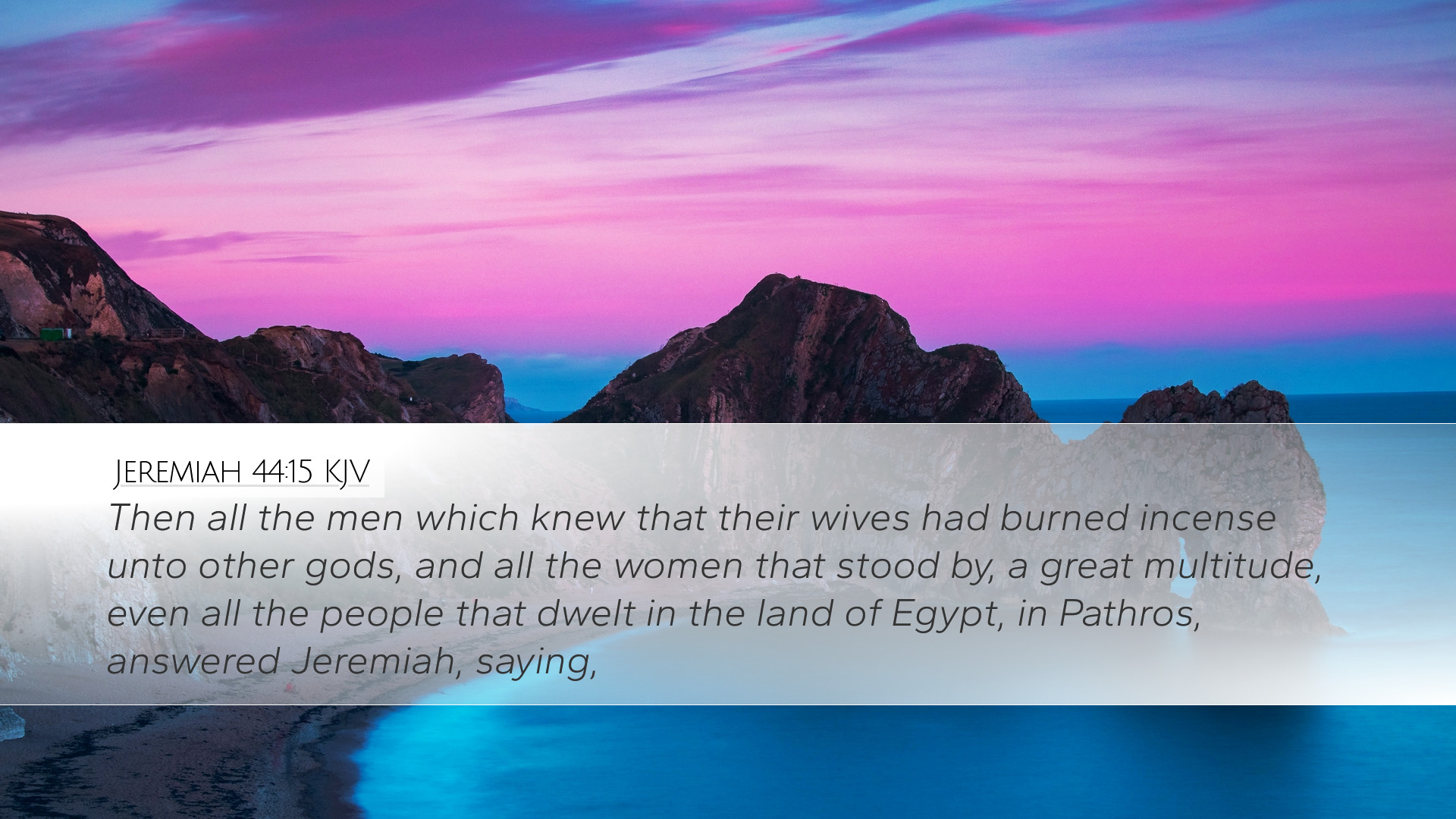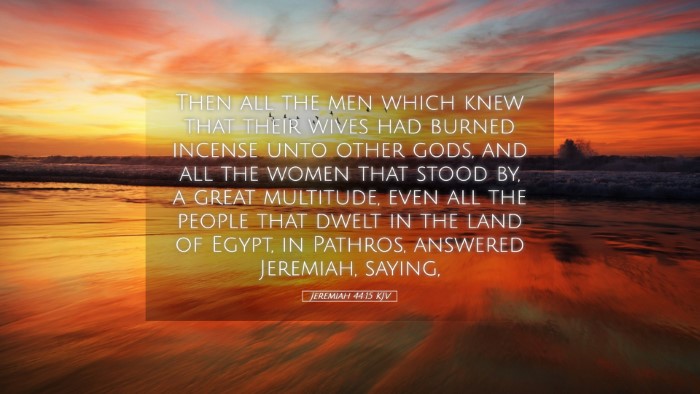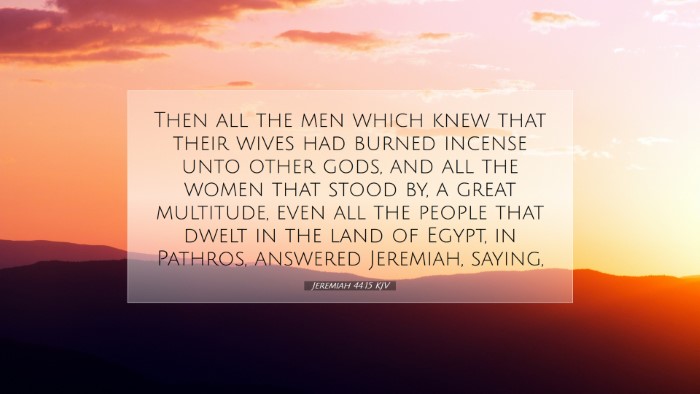Commentary on Jeremiah 44:15
In this passage, we witness a pivotal moment for the people of Israel during their exile in Egypt. Jeremiah 44:15 states:
"Then all the men which knew that their wives had burned incense unto other gods, and all the women that stood by, a great multitude, even all the people that dwelt in the land of Egypt, in Pathros, answered Jeremiah, saying."
Contextual Background
The chapter takes place within the larger narrative of Judah’s post-exilic reality, where the remnant of the people, fearing repercussions from Babylon, seek refuge in Egypt. The response by the people delineates not only their physical location but their spiritual condition.
Insights from Commentaries
Matthew Henry’s Commentary
Henry emphasizes the spiritual defection of the people, highlighting their conscious decision to worship pagan deities despite the knowledge of God’s commandments. He notes:
- Awareness of Sin: The men and women are aware of their idolatrous actions, showing a willful rebellion against God.
- Collective Guilt: The use of “all the men” and “all the women” indicates a widespread acceptance of the sins committed within the community.
- Resistance to Prophecy: Their reaction demonstrates a hardened heart toward prophecy, underscoring the challenge faced by Jeremiah as a prophet.
Albert Barnes’ Commentary
Barnes provides a different angle by focusing on the sociopolitical implications of the people's actions:
- Contextual Idolatry: The act of burning incense to other gods represents not only personal transgression but predisposed cultural practices ensconced in Egyptian society.
- Public Declaration: The response of a “great multitude” signifies unity in opposition to prophetic counsel, stressing the societal norms that oppose divine law.
- Historical Recidivism: Barnes draws parallels between this moment and previous instances in Israel’s history, illustrating a pattern of forgetfulness concerning God’s covenant.
Adam Clarke’s Commentary
Clarke delves into the psychological and theological ramifications of this response:
- Pervasive Desperation: The context of fear regarding Babylon reflects a lack of trust in God’s sovereignty, leading to desperate measures including idolatry.
- Women’s Influence: Clarke notes the significant role of women in this apostasy, which can draw reflections on the dynamics of influence within community worship.
- Theological Conflict: The text confronts readers with a major conflict: the tension between cultural practices and the worship of Yahweh, calling for self-examination.
Theological Reflections
This passage serves as a profound reminder of the persistent struggle against idolatry faced by God’s people.
- Idolatry in Modern Context: Just as the ancient Israelites succumbed to the allure of foreign gods, contemporary believers must guard against the subtle idols of modern culture.
- Corporate Responsibility: The collective nature of the sin affirms the premise that corporate identity often shapes individual ethics—calling church communities to engage in accountability and mutual encouragement.
- Response to Divine Authority: This refusal to heed God’s warning through Jeremiah challenges modern readers to reflect on their own responses to divine correction.
Application for Pastors and Leaders
Pastors and church leaders must preach the dangers of idolatry with clarity and urgency:
- Recognizing Idols: Encourage congregants to identify and dismantle hidden idols in their lives—whether they be material possessions, relationships, or personal ambitions.
- Modeling Obedience: Leaders should strive to model faithfulness and obedience to God’s Word, demonstrating the transformative power of true worship.
- Creating Safe Spaces for Confession: Foster environments where individuals can confess struggles with sin without fear of condemnation, promoting healing and restoration.
Conclusion
The response of the people in Jeremiah 44:15 serves as a timeless cautionary tale against the persistent allure of idolatry. Commentary from various scholars provides a rich tapestry of insights that challenge believers today to remain steadfast in their commitment to God, holding fast to His commandments amidst a world that often tempts them to turn aside. The rejection of prophetic counsel metaphorically mirrors the struggles faced in the current age, compelling a thorough self-examination of what it truly means to worship God in spirit and truth.


